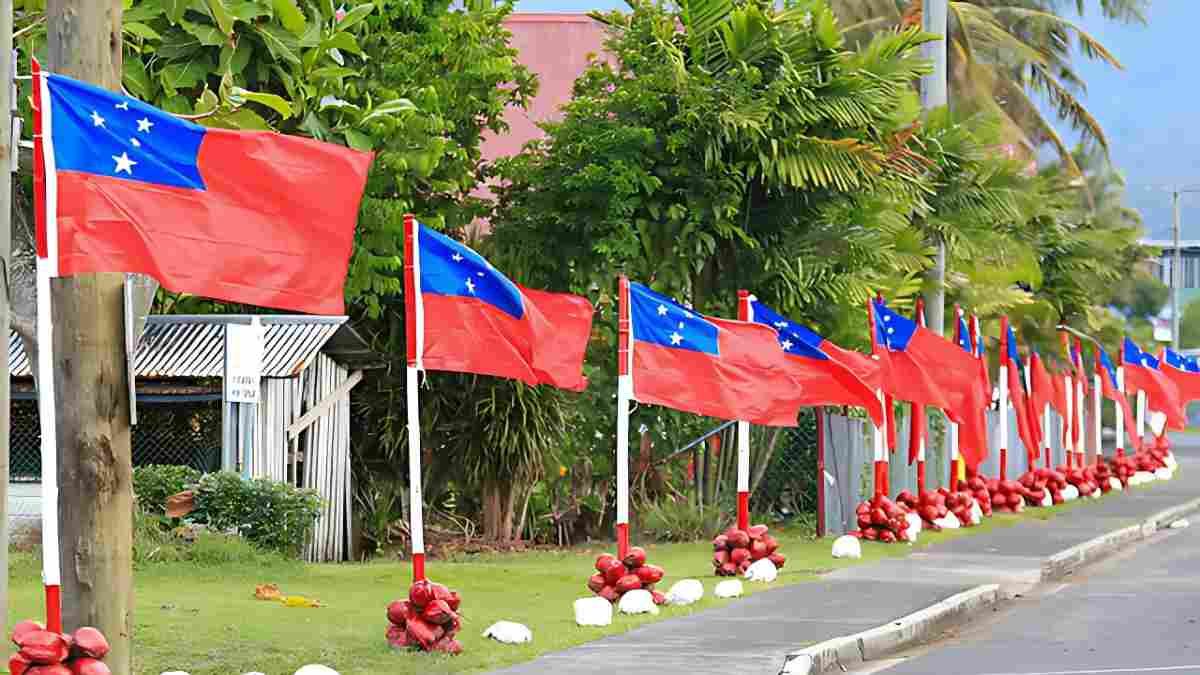

The weeklong Commonwealth leaders' gathering has opened in Apia in a carnival of traditional songs and dances by the locals. Photos/CHOGM
CHOGM: Pacific progress key - expert
International Relations Professor Dr Robert Patman says with geopolitics, climate change, and economic justice among the talking points, Pacific leaders will be pushing their priorities at the Commonwealth meeting

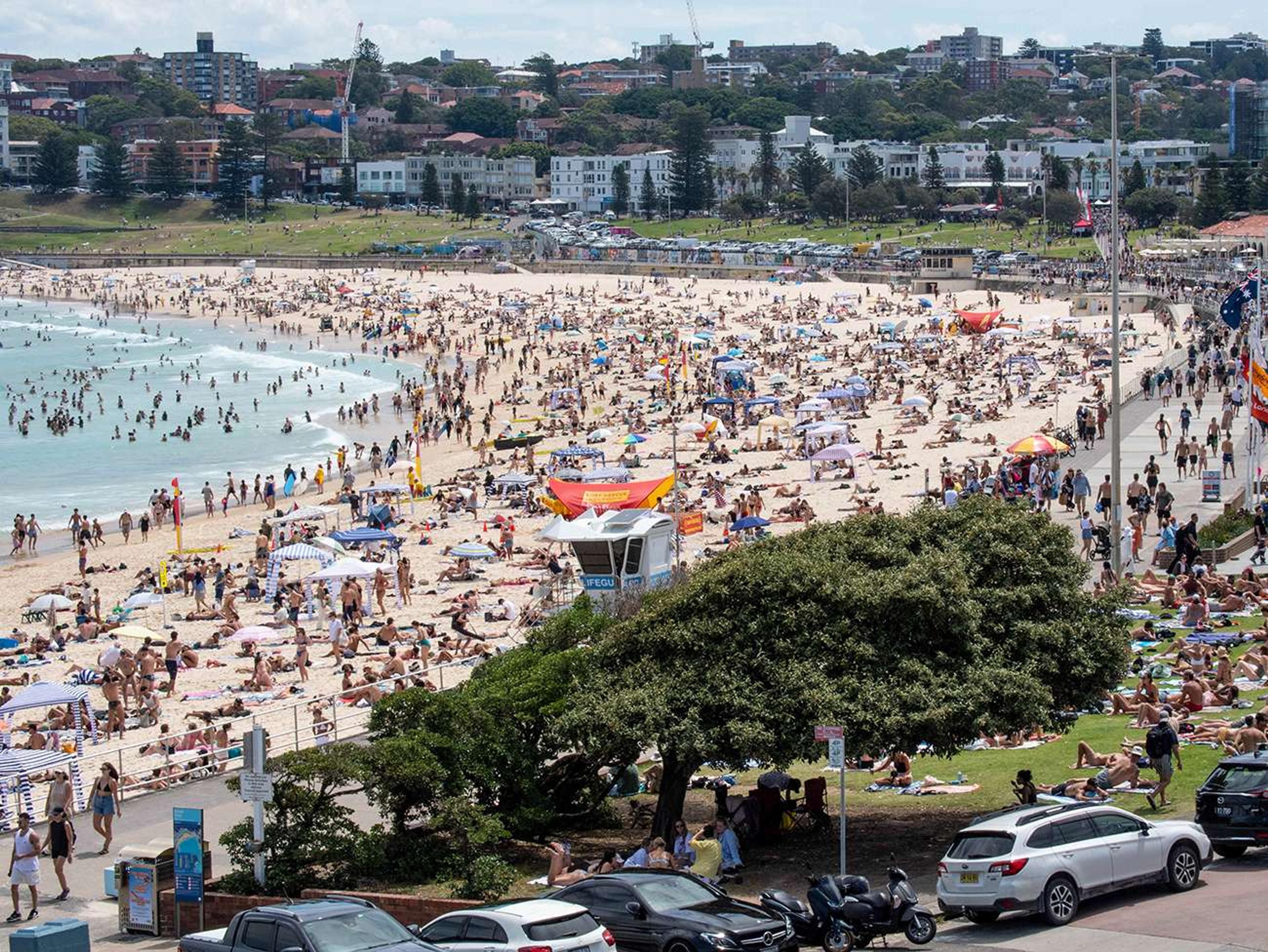
Pacific leaders call for unity after Bondi attack

Black Caps legend joins global fight against gender violence

US warns Fiji over human trafficking concerns linked to Grace Road Group

Sāmoan stars in Aotearoa NZ: Donell Lewis and Kennyon Brown tour with DJ Noiz

Pacific leaders call for unity after Bondi attack

Black Caps legend joins global fight against gender violence

US warns Fiji over human trafficking concerns linked to Grace Road Group
While geopolitics and counterterrorism are expected to dominate the Commonwealth leaders' meeting in Sāmoa this week, the Pacific will be seeking answers to its key priorities such as the climate and economic crises, an international relations expert says.
It is the first time a Pacific island nation is hosting the biennial event and the first time King Charles III will deliver the opening address in Apia as Head of the Commonwealth.
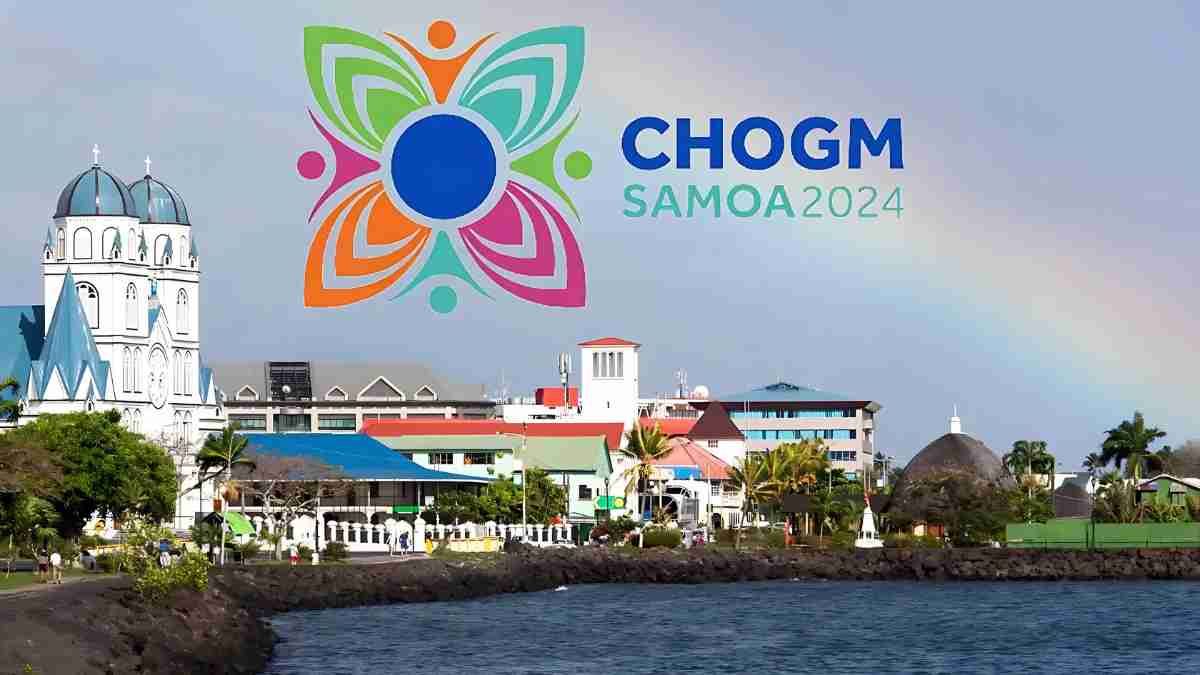
Charles and wife Camilla will arrive in the Pacific island nation from Australia as part of their Autumn Tour which started Down Under on 18 October.
Professor of Politics and International Relations at Otago University, Dr Robert Patman, says while the royal couple are expected to face anti-monarch protests, the key issues for Pacific island nations go beyond calls for a republic.
Patman told Pacific Mornings' William Terite that for the Pacific, the Commonwealth Heads Of Government Meeting is about putting vulnerable groups at the forefront of all discussions.
"Sāmoa have indicated there are two areas they particularly like to focus on. One is climate change....because it is the number one national security issue for most Pacific Island nations," Patman said.
"The host will make sure that this issue gets more air time than it normally does in international diplomatic circles.
"The second thing that's been mentioned by the host government is they're anxious to see progress on issues like economic justice.
"Many of the countries attending are relatively poor and developing, and there is a sense that internationally, there is a relationship between the developed and developing countries, sometimes classified as the have and have nots," Patman told Terite.
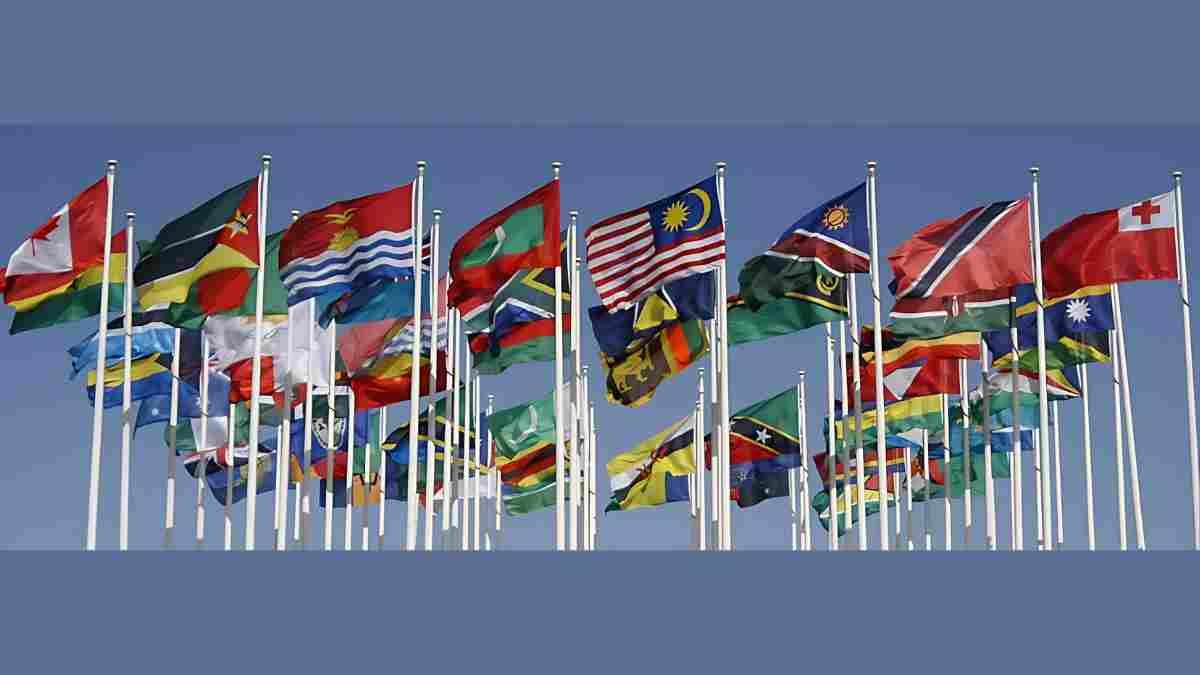
Flags of the 56 member states of the Commonwealth.
What is the Commonwealth?
The Commonwealth of Nations was formed to maintain an association between countries that had once been part of the British colonies.
There are 56 Commonwealth member states from Africa, Asia, the Caribbean and Americas, Europe, and the Pacific - Fiji, Kiribati, Nauru, Papua New Guinea, Sāmoa, Solomon Islands, Tonga, Tuvalu, Vanuatu, New Zealand, and Australia.
More than 3000 delegates, including leaders, will be in Apia for the weeklong summit with forums focusing on women, youth, and people hosted across the Sāmoan capital.
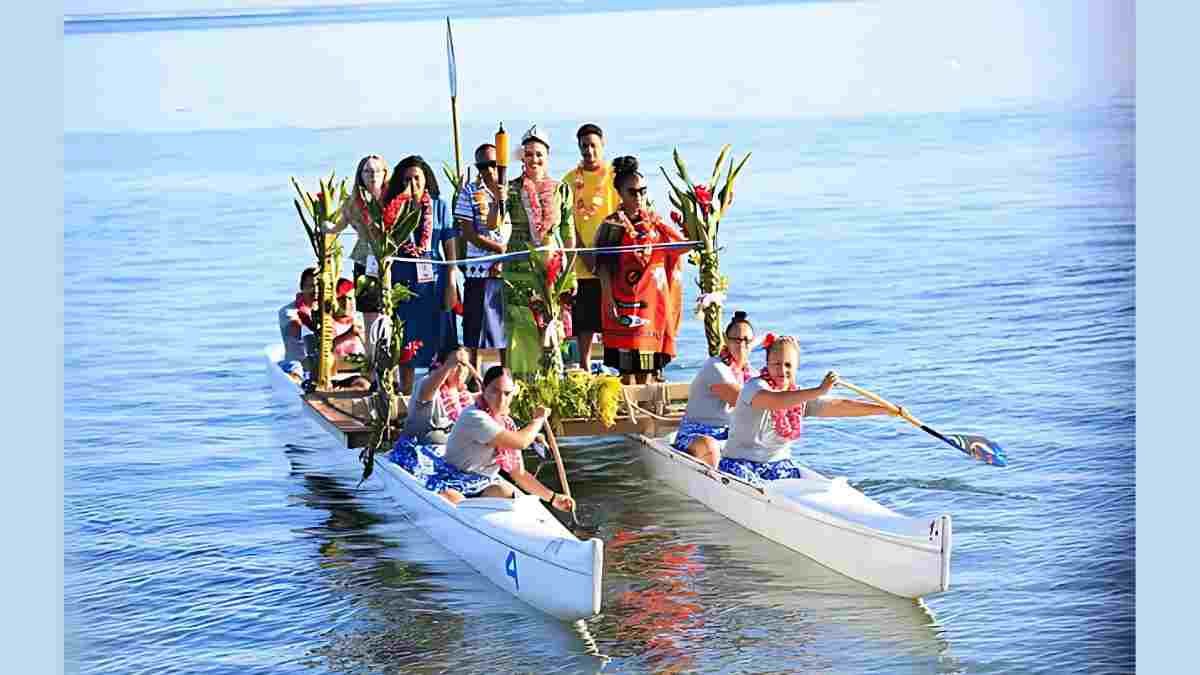
Reigning Miss South Pacific Moemoana Safa'atoa Schwenke carries the Commonwealth 'Torch of Change' during the opening ceremony.
Sāmoa's youth sang their message of solidarity on the voyaging canoe, Gaualofa, overlooking Mulinu'u Bay during the opening ceremony of the joint forums on Monday.
The 'Torch of Change' campaign, led by the Sāmoa Victim Support Group (SVSG) was also launched during the opening ceremony.
The women, youth, and people forums ended on Tuesday while the business forum will end on Wednesday.
The heads of government meeting will be held on Friday and New Zealand's Prime Minister Christopher Luxon, and Deputy Prime Minister and Minister for Foreign Affairs, Vaovasamanaia Winston Peters, are attending.

Sāmoan Prime Minister Fiamē Naomi Mata'afa at the launch of the joint women, youth, and people's forums.
'Historic week'
In her address at the joint forums opening ceremony on Monday, Sāmoa's Prime Minister Fiamē Naomi Mata'afa said, "This gathering marks the start of a historic week for our Commonwealth Aiga.
"It's about meaningful dialogue and impactful collaboration across our Commonwealth family.
"The people, women, and youth forums represent the critical voices of our people, especially the women, youth, and children," Fiamē said.
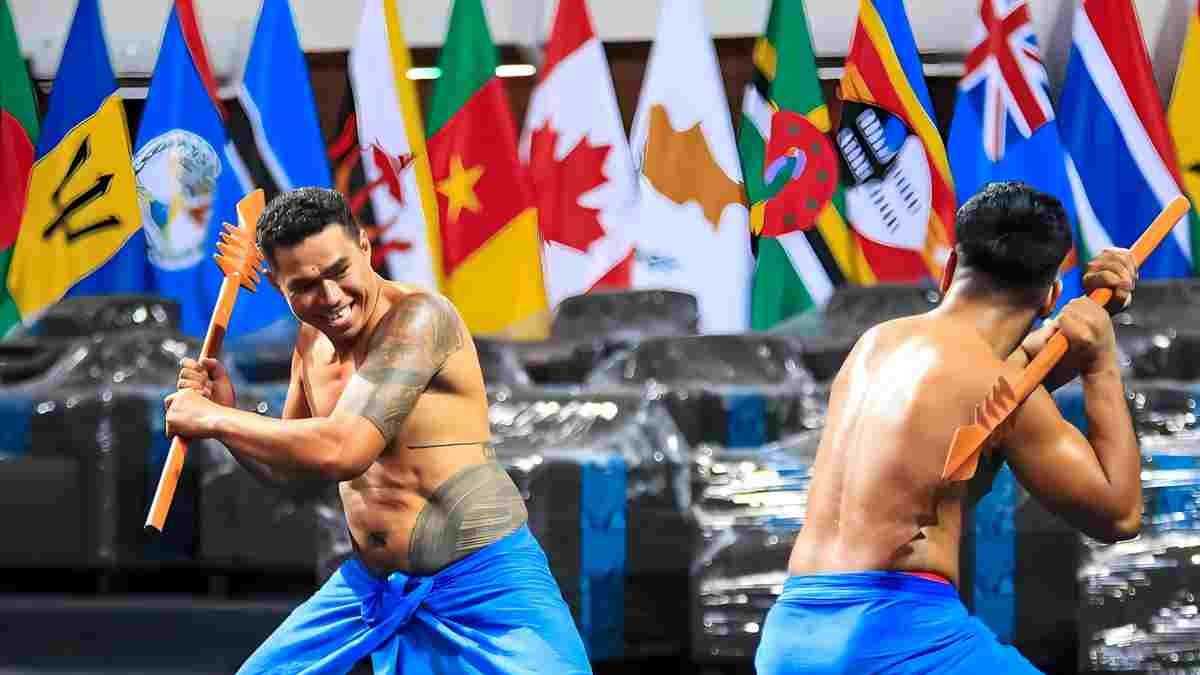
Patman says human rights and the rule of law are other issues the Pacific delegations will want to focus on.
He says many middle powers and small states find themselves bypassed in an international order where major decisions are made by the UN Security Council.
"And this is a chance, under the umbrella of the Commonwealth, for smaller countries, smaller states, to push the issues they want to see given more prominence on the international agenda.
"The Commonwealth in the past has succeeded in making some issues much more prominent. You only have to think back to the Commonwealth's quite resolute opposition to apartheid in South Africa in the 80s. So there are some of the issues that may come up."
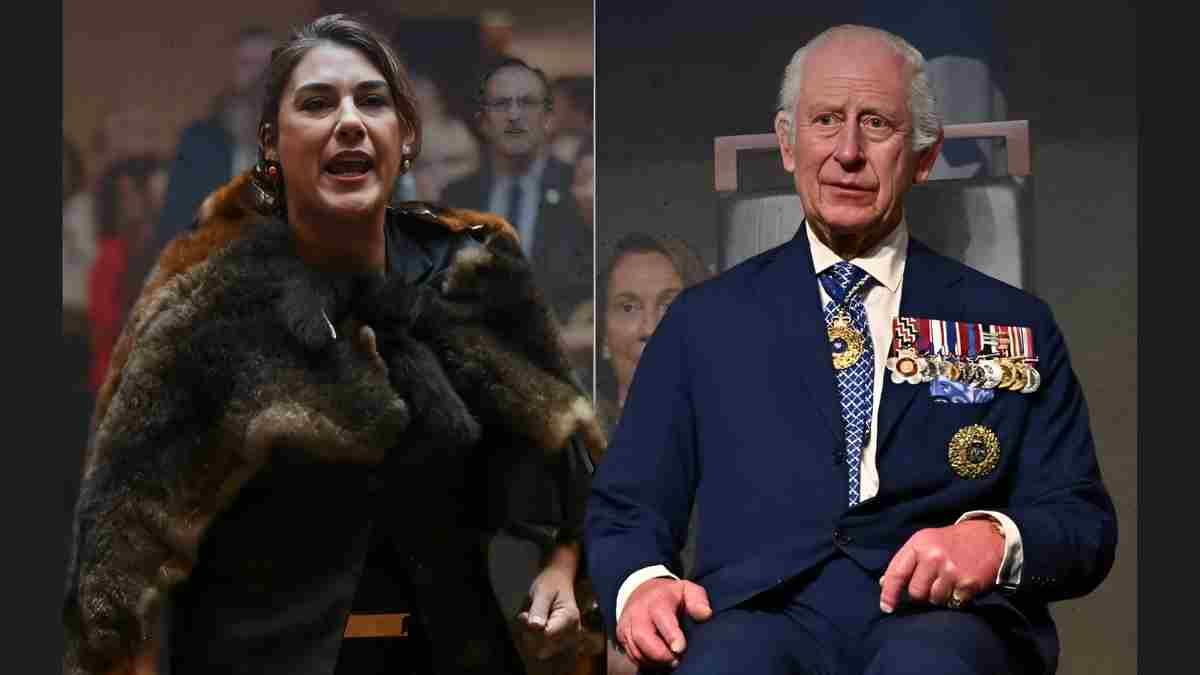
King Charles III looks on as Senator Lidia Thorpe heckles him in the Australian Parliament. Photo/2GBSydney
'Not my king'
Charles and Camilla's nine-day jaunt through Australia and Sāmoa is the first major foreign tour since his life-changing cancer diagnosis earlier this year.
The royal couple made a relaxed start to their tour Down Under but during a visit to Canberra on Monday, the King was heckled by an Aboriginal lawmaker while addressing the Australian Parliament.
“You committed genocide against our people. Give us our land back! Give us what you stole from us!” Senator Lidia Thorpe yelled.
“Our bones, our skulls, our babies, our people. You destroyed our land!”
“You are not our king. This is not your land!” Thorpe continued as she was led away by security.
Charles, 75, underwent cancer treatment at home and this has been suspended while he is in Australia and Sāmoa.
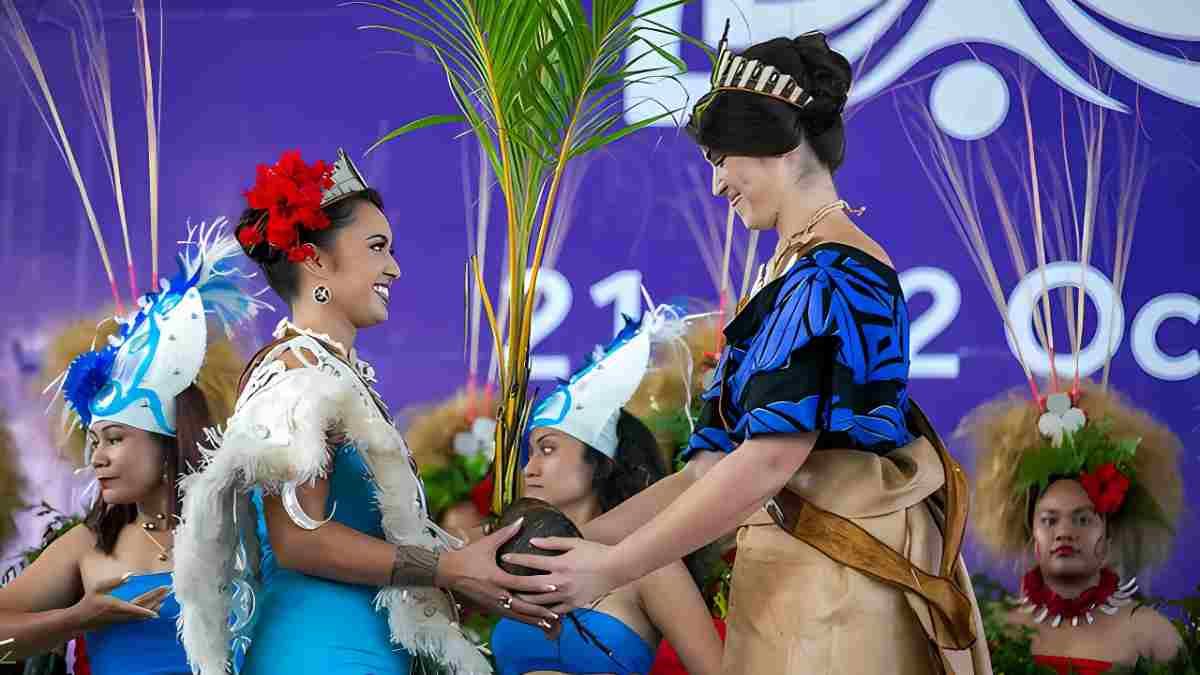
Miss South Pacific Moemoana Safa'atoa Schwenke, left, and Miss Sāmoa Litara Loma Leilani Ieremia-Allan join in the celebrations.
Patman said the CHOGM is largely attended by former British colonies and "it's fair to say that there's a fair amount of disgruntlement about the fact that Britain has not, is unwilling to pay reparations for countries where it was the formal colonial power.
"Although most countries grumble about it, they go along with that. But I do think countries of the global south and the former colonies do want to have a much greater say in the way the world's run and they're entitled to do so.
"Why? The reasons are quite simple. Most of the problems we face, all states, superpowers, middle powers, and small states, are too big to be solved by superpowers acting alone.
"Climate change, global pandemics, transnational terrorism, these problems by definition cannot be solved by anything other than international cooperation. This means the smaller players in the international community have much more leverage than they've ever had before.
"This is an opportunity for the smaller countries of the world to stress their priorities."
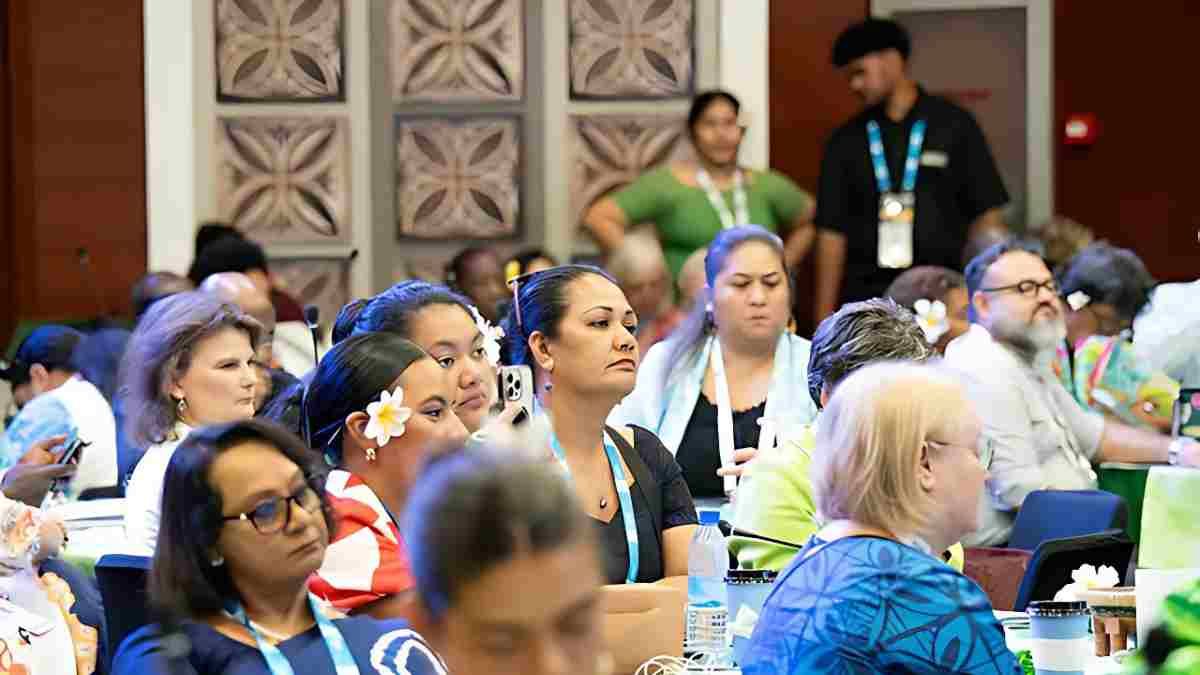
Delegates at the Women's Forum.
Wednesday's CHOGM Sāmoa programme:
10am-12pm: Ministerial Action Group (CMAG), Samoa Business Hub Conference Room
2pm-5pm: Ministers Meeting on Small States (CMMSS), Location: TBC
9am-5:30pm: Business Forum/Enterprise and Investment Council (CWEIC), by invitation only.
The CHOGM theme is 'One Resilient Common Future: Transforming our Common Wealth'. CHOGM ends on Saturday.
